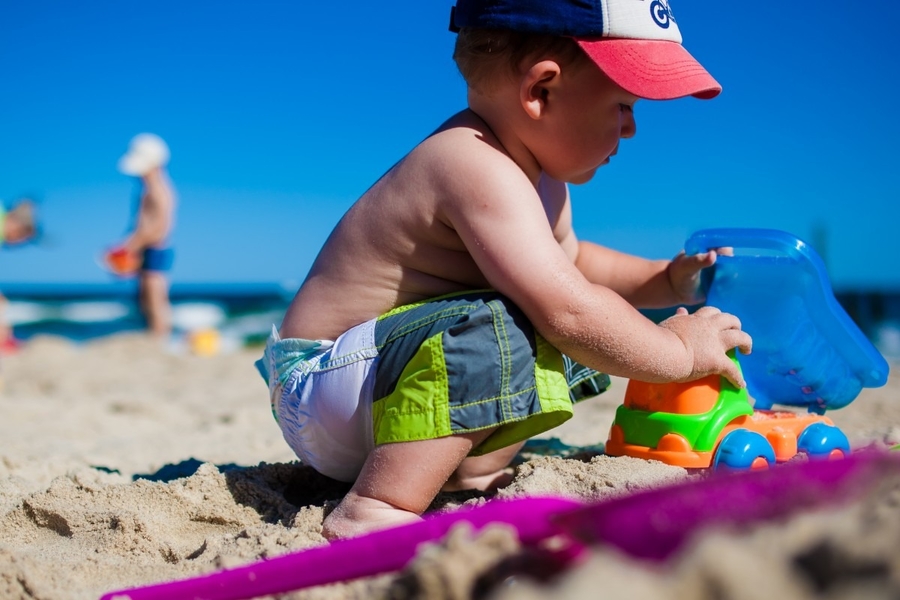
Here’s Why The Proverb All Work And No Play Makes Jack A Dull Boy Is True
10 Jan 2018 | 4 min Read
Priyanka nimmala
Author | 2 Articles
I see many parents have gained knowledge on early learning and early childhood education and different philosophies of education which they follow at home, but have forgot that “Play” is very important early learning skill.
Many mom’s complain that my child doesn’t sit in a place and concentrate on the activity what do I do? My child always wants to play outdoor and not willing to read a book, what do I do?
Even I have faced the above situations and what I have learnt from my experience is that, let them be what they are and let them do what they want to do because they are actually learning what they want to learn from nature. They learn gross motor skills from outdoor play.
We just need to be a part of their play. I want to share reasons why it is important to play.
Play is therapeutic because of its own nature and so play takes its place in therapeutic studies as “play therapy”. It’s child’s own language to communicate with the world.
1- Emotional Development
Play is very important in kid’s emotional development. They use play to release their emotion. They show their feelings while playing like anger, frustration, happy, sad etc; we as parents or educator have to acknowledge their feelings whether it is positive or negative. Recognize the feelings that a child is expressing and reflect those feelings back to him/her in such a manner that the child gains insight into his/her behavior.
Love your child and show your affection, let them try new things and establish daily routine.
2- Physical Development
Play helps in developing their gross motor and fine motor skills which helps in overall physical development of a child.
Example- If a child wants to ride only bicycle and not doing any other activity let him ride, it develops their gross motor skills and you can extend it by teaching him directions like left, right, turn around, circle and also traffic signals and signs. Through this play child will learn gross motor, traffic signs and signals and the topic on transportation can also be covered.
3- Cognitive Skills
Play also helps in developing cognitive skills in children. While learning through play they are repeating actions, learning new things and implementing them. It helps in building attention, concentration and memory.

Example:
– when a child is practicing throwing a ball it involves repetition of movements which is functional play a form of cognitive skill.
-dropping popsicles in a container
-pretending a block is a broken car and pretending to fix it.
-playing hopscotch, activities like pattern making, size discrimination, visual discrimination all these helps in cognitive skills.
4- Imaginative Skills
When a child is playing a pretend play like fruit market game where in a kid is playing a role of seller he learns different ways to sell the product, how to engage customer in their shop and make them buy the vegetables. They also learn mathematical skills here and also social skills.
They become more creative and come up with new ideas themselves.
5- Sensory Development
Sensory play involves 5 senses- taste, smell, and touch, hear and sight. Sensory activities can be messy, engaging, fun and connected to the activity.

Example- Give a tray with corn flour and water and let them play with it. They mix it; make it move back and forth. Up and down. Whatever they do, they are doing it with their hands. It means they are getting in touch with the activity and sensing how the texture of the corn is (smooth). You can see their feelings whether they like messy play or not.
You can also make sensory bottles to teach them colors with just water and color in a bottle. Play dough is also another great material for sensory play and uses are endless.
Disclaimer: All Photographs in this article are original and belong to the author. Reproducing them in any form without the permission of the author will not be allowed.
Also read: Household Chores That You Can Make Your Tot Do
Explore the entire collection of articles: Early Learning & Brain Development
A


Related Topics for you
Suggestions offered by doctors on BabyChakra are of advisory nature i.e., for educational and informational purposes only. Content posted on, created for, or compiled by BabyChakra is not intended or designed to replace your doctor's independent judgment about any symptom, condition, or the appropriateness or risks of a procedure or treatment for a given person.
